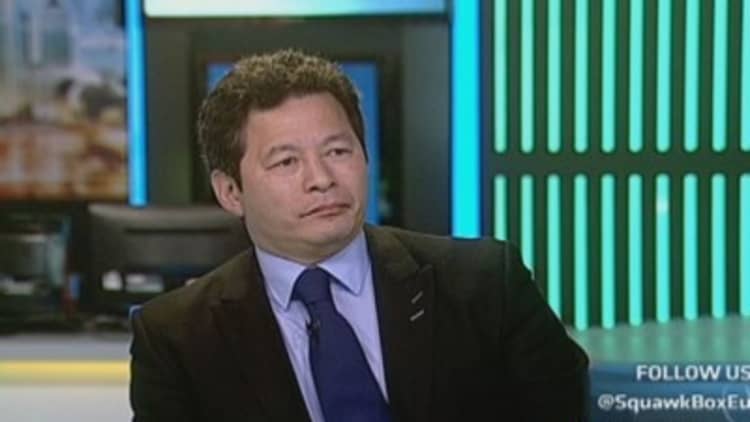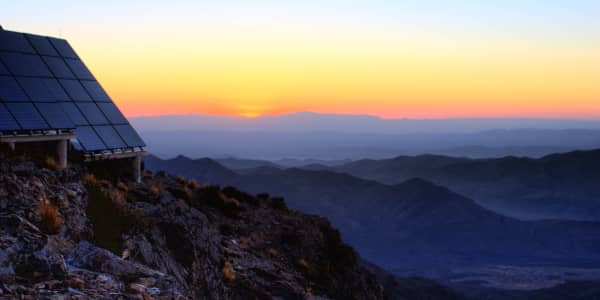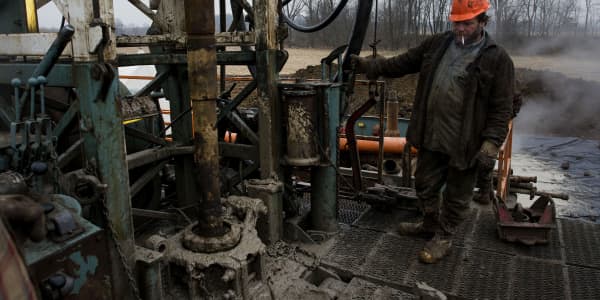What's bad news for consumers—namely, high energy prices—can be great for large investors and oil and gas companies.
According to new research by RBC Capital Markets, 76 percent of institutional buyers and energy firms surveyed expect crude oil prices to remain above $100 for at least the next year. About the same number of energy market participants, 74 percent, think — already challenging $5 per British Thermal Unit, will also remain elevated, according to the report, which is being released Wednesday.
RBC's survey comes as global risk factors for oil and gas remain high and the summer driving season gets in full swing—both elements that normally translate into higher gas and oil prices. On Wednesday, the Energy Information Agency reported that U.S. crude supplies plummeted by about 3.4 million barrels, helping to prop crude prices well above $100.
Read MoreGas prices shouldn't be high, but are. Here's why
crude hasn't traded below $100 since July, while West Texas Intermediate crude closed above $104 last week, its highest level in nearly three years. Along with supply and jitters stemming from the tensions between Ukraine and Russia, production troubles in places like Libya, Nigeria and Venezuela are spurring oil prices amid uncertainty about the global economy.
"Some [of the oil surge] is macroeconomic related, and attributable to the economic strength of the U.S ... and a decent growth rate internationally," Kurt Hallead, co-head of Global Energy Research for RBC Capital Markets, said in an interview.
While that may mean more pain at the pump—and in the mailbox when utility bills arrive—it's bullish for energy stocks like EOG Resources, ConocoPhilips and Schlumberger.
U.S. oil and gas production has surged to record levels, but the outlook for production recently suffered a setback after the government sharply downgraded its estimates for recoverable oil from the vast Monterrey Shale formation in California.
Read MoreMonterey downgrade won't dent US shale boom—yet
Speculation that the shale renaissance may taper off within a few years may be leading investors to bid up commodities and related assets in the immediate term, Hallead said.
"Also being factored into the market are the sustainability of shale production, which typically has high production in first couple of years then a dropoff thereafter," Hallead added.

Despite lengthy delays in the possible approval of TransCanada's Keystone XL pipeline, the overwhelming majority of those surveyed by RBC expect eventual approval. But that comes with a caveat: 45 percent of energy market players say the green light will come after 2017—after President Barack Obama has departed from the White House—while 41 percent say it could come in 2015-2016.
The U.S. is also expected to allow its oil to be shipped to international markets. RBC said 74 percent of respondents believe crude exports will be green-lighted. Of that number, 43 percent expect the ban to be lifted in 2017, while 31 percent say it could come within two years.
—By CNBC's Javier E. David.





